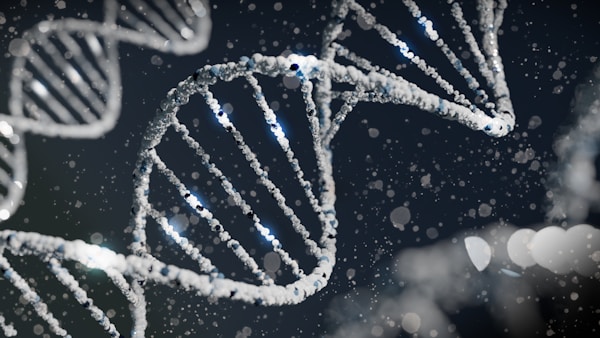Addiction and overdose (OD) can be traced back to family history and genetics. Studies have found that individuals with a familial history of addiction are more likely to develop an addiction themselves. Additionally, individuals with a genetic history of overdose are more likely to die from an overdose. This is because addiction and overdose can be influenced by a variety of factors, including these.
While the role of these hereditary factors in addiction and overdose is still being studied, there is evidence that they can play a significant role. If you have a family history of addiction or overdose, it is important to be aware of the risks and to seek help if you need it. Take the time to understand these traits in your family tree and be aware of things like the signs and symptoms of opioid overdose just in case—you never know when you or a family member may need help.
Genetics

Genetics is the scientific study of genes and their influence on physical characteristics and health. Every person has a unique set of genes, which are the instructions for building and running the body. The best DNA testing services will include context alongside your test result, linking particular genes or mutations to known risk factors or traits. Genes are passed down from parents to children and can influence a person’s risk for developing certain medical conditions, including drug addiction and overdose.
Scientists have identified a number of genes that may contribute to drug addiction and overdose. For example, genes that code for certain neurotransmitters, the chemicals that allow nerve cells to communicate with each other, may play a role in addiction. Additionally, genes that control how the brain responds to stress or pleasure may also influence a person’s risk for addiction.
Family History
Family history is the study of how family members are related and how they influence each other’s health. Among its many influences, this can play a role in drug addiction and overdose. Studies have shown that people with a familial history of addiction are more likely to become addicted to drugs. This is because they are more likely to inherit the genes that increase the risk of addiction.
People who have a hereditary history of addiction are also more likely to suffer from an overdose if they do become addicted to drugs. This is because they are more likely to have the same genetic vulnerabilities that led to addiction.
Drug Addiction and Overdose

Substance abuse is a complex issue that can be affected by a variety of factors. Genetics and family members’ history are certainly important, but they are not the only factors that contribute to addiction and overdose. For example, many people become addicted to drugs after using them to self-medicate for mental health issues like anxiety or depression. Additionally, environmental factors like stress or exposure to trauma can also increase a person’s risk of addiction.
The risk of overdose is also greatly increased when people mix drugs with alcohol or other depressants. This can lead to a condition called “drug poisoning,” which can be deadly. Additionally, some people may not be aware of the potential interactions between different drugs, which can also lead to an OD.
There are many ways to reduce the risk of addiction, including seeking treatment if you are addicted to drugs. However, it is important to be aware of the role that hereditary factors can play in addiction. If you have a family history of addiction, it is important to take preventive action to reduce your risk of becoming addicted to drugs.
It’s essential to remember that addiction is a disease that can affect anyone, regardless of their race, gender, or socioeconomic status. And while addiction is a serious problem, it is also a treatable one. There are many effective treatments available, including medication-assisted treatment, counseling, and support groups.
If you or someone you know is struggling with addiction, don’t hesitate to seek help. There are many resources available, and with the right support, you can overcome addiction and live a healthy, happy life.















